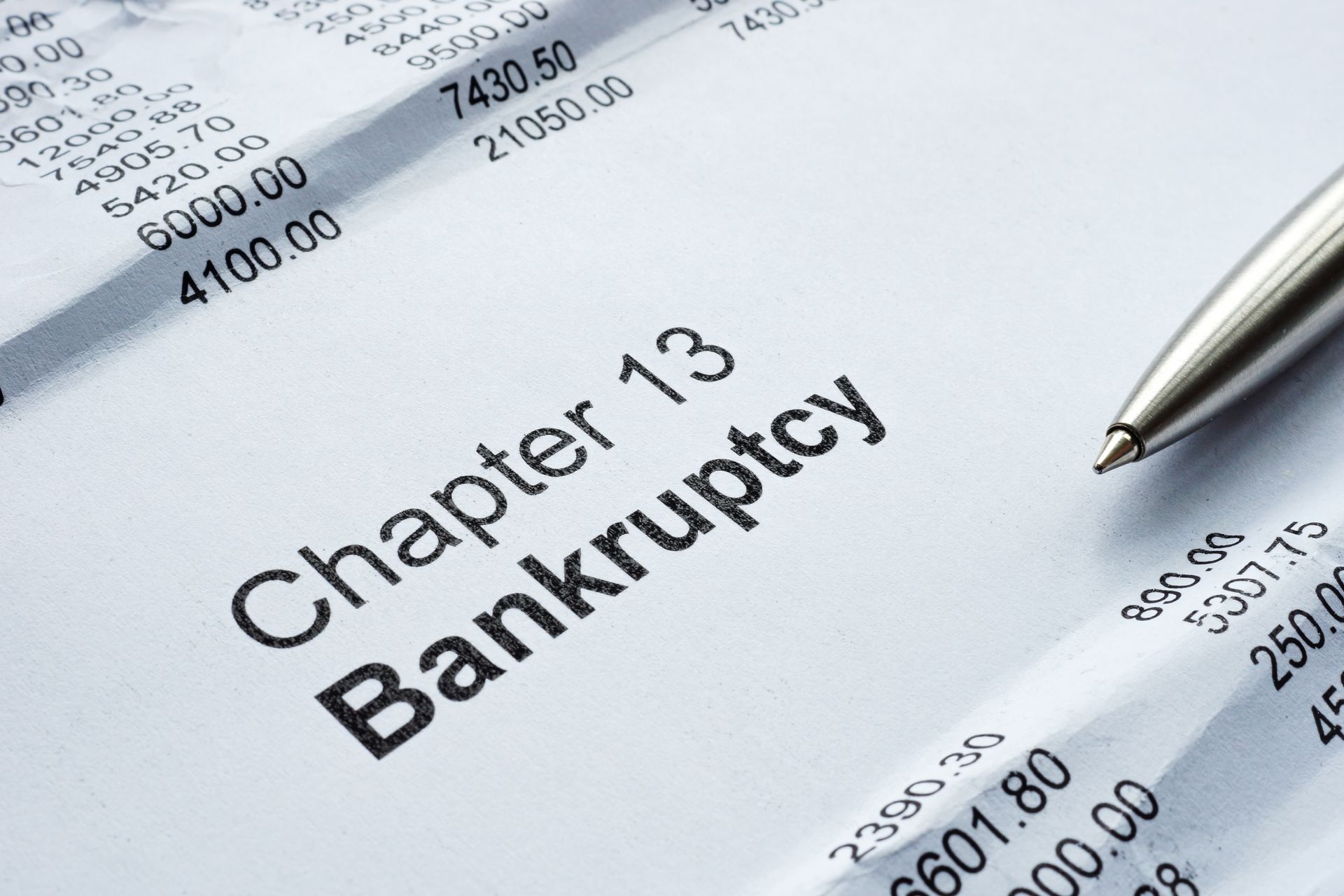Can I Rebuild My Credit During a Chapter 13 Bankruptcy?
Rebuilding Credit During Chapter 13 Bankruptcy
The word ‘bankruptcy’ carries a grim reputation. From a legal standpoint, though, there is much more to the term. Bankruptcy is a legal process designed to help people find relief in the face of insurmountable, overwhelming debt. This post examines the process of bankruptcy — particularly Chapter 13 bankruptcy. It also will help you understand important information about rebuilding your credit and upping your credit score during the bankruptcy proceedings.
Is Bankruptcy a Good Thing?
Although not an easy decision to make, filing for bankruptcy may be the best option for some people to get their financial distress in order and begin anew.
When first starting the process of declaring bankruptcy, you have multiple options in choosing how to move forward. You can file under several "chapters," which all work differently. A chapter 13 bankruptcy is a method for people to settle their debts without the severity of other chapters. You can make scaled payments that are affordable to you. This is done over a period of time, and the tradeoff is the forgiveness of much of your incurred debts.
Getting Started on Rebuilding
In general, you can expect a chapter 13 bankruptcy to endure for three to five years. During that time, you can focus on rebuilding and stabilizing yourself.
One of the biggest challenges those in bankruptcy processes face is the prospect of rebuilding credit.
Reaching the point where bankruptcy is the only option does not happen overnight. Usually, you will struggle for a significant amount of time and fall behind. This could look like any of the following complications:
- Increasingly late payments
- Missing payments
- Failure to repay invoices
- Increased credit card debt to compensate
- Higher interest loans accumulate more charges
- Credit reporting and chapter 13 bankruptcy
Some people may feel aversive to bankruptcy due to the timeframe it remains active and present on your credit report. However, the typical assumption is that a bankruptcy can stay on that report for up to 10 years. And 10 years can seem like an exceptionally long amount of time to wait for remediation.
While it is true that bankruptcy remains on your credit report for some time, the exact amount of time is usually not 10 full years for chapter 13. The 10-year number only applies to chapter 7 bankruptcies.
So what does this mean for chapter 13 bankruptcy? How long can you expect to see it on your credit report?
When filing under chapter 13 bankruptcy, you can expect the mark to remain on your credit report for up to 7 years after the initial filing. For instance, if you determine a 6-year repayment plan for debts, then the bankruptcy filing will only remain on your credit report for one additional year.
Additionally, having this mark on your credit report does not mean that you can’t take any steps toward rebuilding your score in the interim.
Steps to Rebuild Credit During Bankruptcy
Fortunately, even with a bankruptcy filing on your credit record, you can still work to get your credit back on track. There are several methods you can utilize to accomplish this goal, including the following:
1. Review Your Credit Report for Accuracy
This advice applies to everyone, not just those who have gone through bankruptcy proceedings. First, obtain and review your credit report from major reporting agencies. Check for discrepancies, suspicious charges, and other problems. Dispute anything that may look fishy or inaccurate.
Sometimes in the case of serious financial issues, mistakes or inaccuracies can occur on your credit. This is why thoroughly reviewing your report is so critical.
2. Open a "Credit Building" Credit Card or Loan to Develop On-Time Payment History
One of the most important factors in rebuilding any credit is a history of on-time payments made by the borrower. And one of the best ways to establish on-time payment history is by obtaining a secured or credit building card or loan.
These cards and loans are typically lower in their limits with the idea to start small and commit to responsible repayment.
3. Ask a Family Member to Add You to Their Credit Card Account
Friends and family can provide some help to get you back on your feet. A very simple way to obtain support is to ask if you could be added to the credit card of a trusted friend or family member.
Becoming an authorized user on an already open account connects you to an approved amount of credit. This can help add some positive numbers to your available credit when building yourself back up.
It may seem like a difficult request to make, but in most cases, your friends, family, and loved ones want to do whatever they can to help you. So why not get in touch with them if all else fails?
When You Should Consult a Bankruptcy Attorney
All sorts of people find themselves in the unfortunate circumstance of bankruptcy. Yet, in many cases, people are able to get their footing, recover, and begin to thrive again financially.
This type of situation raises a few questions:
- Can I discharge my chapter 13 bankruptcy debt early?
- Will paying off my bankruptcy debt ahead of schedule improve my credit score?
- Should I contact any parties about reassessing my debt?
The answers to these questions will vary. But it is important you have the right advice before taking any additional steps related to your bankruptcy.
For example, discharging bankruptcy debt early may lead some trustees or other unsecured claim holders to modify the repayment terms. This could lead to an undesired outcome for you.
These risks show why consulting and working with a bankruptcy attorney is essential. Their knowledge and expertise can help guide you to a predictable outcome in rebuilding yourself.
For the most part, consulting with an attorney as early as possible will help you better determine your course of action. That way, you can be sure that your choices will help lead you to a more stable financial situation down the road.











